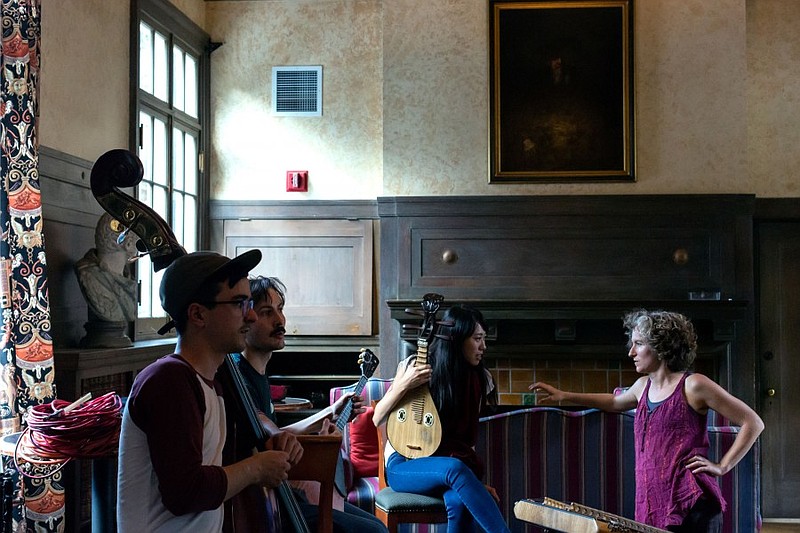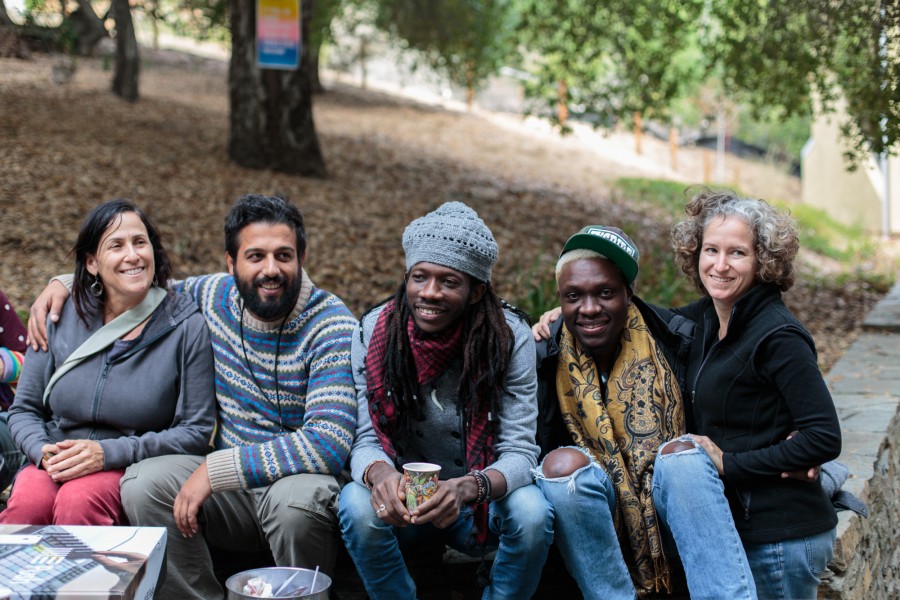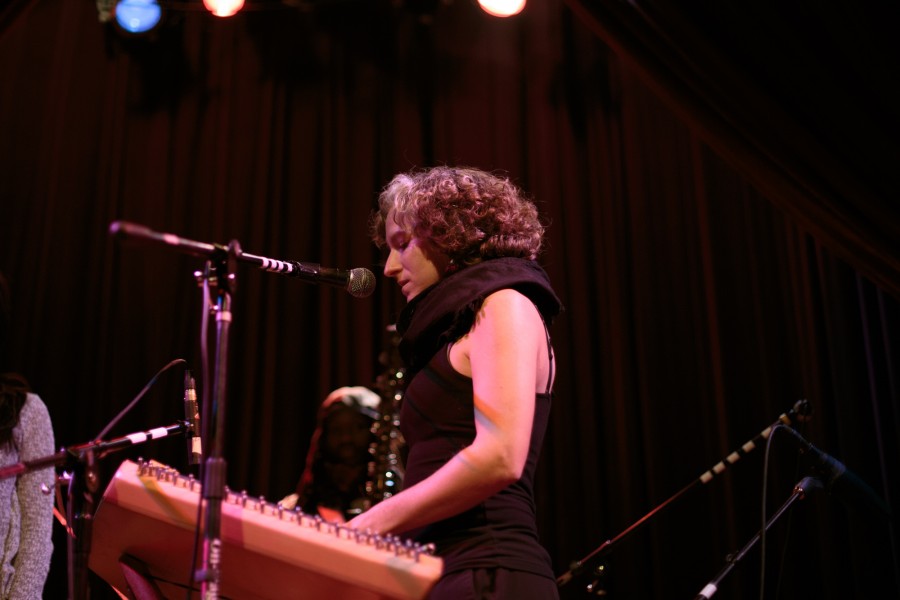If ears were muscle, I'd say mine are stronger now.
In trying to describe what type of musicians are accepted into the five-year-old international OneBeat residency program, co-founder Chris Marianetti starts ticking off criteria such as community activist, teacher, talented musician, a curious mind and a willingness to collaborate with others.
Before going any further, however, he stops himself and points to Christie Burns, who is sitting across from him at a table in The Camp House.
Dosti Music Project
Dosti brings together four Pakistanis, four Indians and two U.S. musicians from several traditions, including Sufi singing, beatmaking and avant-garde jazz, to collaboratively write, record and perform original music.Dosti, which means “friendship” in both Urdu and Hindi, starts in Florida in late February and works its way through Georgia to Chattanooga before concluding in Nashville in late March.The participants will be in Chattanooga from March 17-19 and will give some public performances as well as visit several local landmarks to collaborate on making music.
"You pretty much are exactly who we pick," he says. "Your application had everything."
Chattanooga's Burns was one of 25 musicians chosen out of 4,000 applicants from around the world to spend October on the West Coast as part of the OneBeat program. She is known locally for her dulcimer playing, her teaching and her work with several area projects, including the Folk School of Chattanooga, which she helped start and served as executive director for several years. She is a staunch proponent of local music and can be seen either playing or manning an information table at many area events.
A creation of the U.S. State Department, OneBeat was started five years ago with funding from the department's Bureau of Educational and Cultural Affairs in collaboration with Bang on a Can's Found Sound Nation, a New York-based music advocacy organization.
Marianetti, who is also the artistic director of Found Sound Nation, a collective of musicians who work together to improve communities, was in Chattanooga recently to scout locations for Dosti, a sort of sister to OneBeat that will, for the first time, bring 10 musicians specifically from Pakistan, India and the United States to the U.S. for a mini-version of its bigger sibling. Dosti was put together at the request of officials in Pakistan and India when musicians from there returned home after attending an earlier OneBeat event.
Both Dosti and OneBeat operate essentially the same and for the same purpose, which to bring people together through music. Dosti will be in Chattanooga in March.
Burns is helping Marianetti with Dosti's local leg and could collaborate on future events here and around the region. She was born in New Jersey and attended UCLA before getting her master's in folk studies from Western Kentucky University. The growing art scene and the city's initiatives designed to attract artists to live and work here brought her to Chattanooga more than nine years ago.
OneBeat brings together artists from around the world to live and work together for a month. Music is what connects them, but the program is about so much more than writing and recording or becoming a better musician, Burns says. The 25 artists collaborated in big and small groups formally and informally and traveled up and down the West Coast, giving concerts for communities along the way, sharing and collaborating with each other and opening minds to what music can do.
"Sometimes you were just a conduit," Burns says. "Someone might say they had an idea for a melody and play it for you, and the next day you would share that with someone else who might use it."
It was that kind of collaborative work that stuck with Burns. To say the experience was life-changing would be understating things, she says. As a way of trying to explain what she learned from the experience, she describes standing in a doorway between a concert hall and a patio; one of the OneBeat artists had plopped down at a grand piano and was picking out a tune. Positioned as she was, Burns could hear both the piano and the crickets outside when she noticed they were chirping in time with the piano.
"Or the piano was mimicking them, I don't know," she says.
In any case, she asked the person she was talking to be quiet for a minute or two while she recorded the sounds. She then she used the sounds in a piece she created the next day.
At every meal or break or seemingly casual conversation, someone was making music with either a body part, a stick, a straw or a fork, she says.
"I'd say I learned to listen," Burns says. "Music, or musical sounds, can come from anywhere. I've never been around people with so much reverence for sound."
Now, footfalls on concrete, a car engine, a refrigerator motor, people breathing, almost any sound can be a source for a melody, she says. But even more than that is the idea that seemingly unrelated sounds or instruments or people can work together. Burns says OneBeat taught her to be more open to ideas when working with people.
"I feel more agile," she says. "It was mind-stretching. It was like hearing every show ever played at Barking Legs in one month. If ears were muscle, I'd say mine are stronger now."
Contact Barry Courter at bcourter@timesfreepress.com or 423-757-6354.


